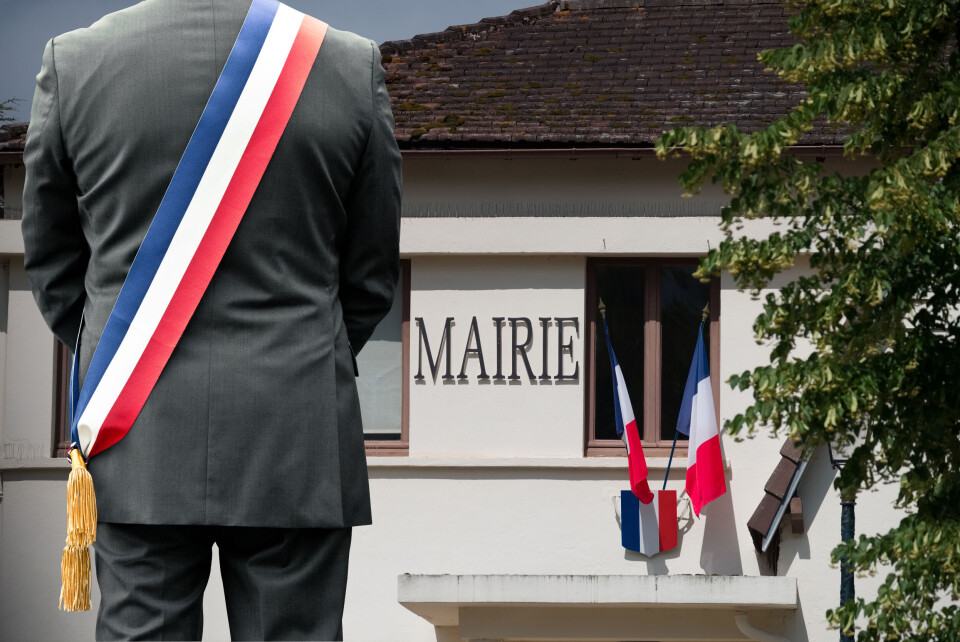-
Mercosur trade deal explained: why French farmers are angry and will it pass?
A decisive vote is due on Friday December 19. Unions say if it passes there will be major disruption
-
Watch out for unregulated therapists in France
Reader who is an American clinical psychologist says those working without legal recognition can be dangerous
-
French bank made me wish I had put savings under the mattress
Current account charges meant reader was losing money despite interest
Leave mairies alone: their role is fundamental to democracy in France
Nick Inman argues that taking responsibility away from the commune and passing it higher up the food chain risks alienating voters

During the Revolution, France developed a peculiar system of government which was both highly centralised and at the same time deliberately devolved.
It is still with us – but only just. While Paris deals with the big stuff, local affairs are theoretically left to the 35,000 communes.
In between are two other levels of administration: departments and regions.
Who’s in charge of what?
The perennial and perhaps unanswerable question that all politicians wrestle with is: which service or duty of the state is best provided by which tier of government to get the best value for the taxpayer’s money and to maximise democratic accountability?
In some cases, the choice is not that difficult.
You would not want every primary school to study a different, unstable curriculum at the whim of the local mayor – but you would want this person to do his or her best to keep the village school open when indifferent bureaucrats far away want to close it and bus the children 10km down the road.
In other cases – healthcare, refuse collection, street lighting, public transport – there are complicated arguments to be made but, generally, the commune and its mayor needs to be involved in how decisions are reached.
Local government under threat
Until not long ago, the mayors of all communes had quite extensive authority and involvement in the machinations of state, but things are changing.
In these days of standardisation and uniformity, government policy is to reduce the idiosyncratic heterogeneity of France in the interests of efficiency and cost-effectiveness.
Which means that all ministers of the interior want to chunk up local government into larger units to cut costs.
The already expansive regions have been forced to combine into even larger ones and the communes encouraged to band together as communautés de communes.
Sense of empowerment
We can argue over the economics of this process – are economies of scale really being achieved? – but there are two other important issues to deal with: empowerment and identity.
The commune represents direct democracy. You know who your mayor is and he or she might only have 400 residents to take care of.
You get to vote for them personally as long as you are an EU national – Brexit disenfranchised British residents.
The mairie, meanwhile, whether big or small, stands in the centre of the community as a reminder that we are all in the same thing together and supposedly living by the code of liberté, égalité, fraternité.
Now, though, as responsibilities are taken away from the commune and passed higher up the food chain, the mayor is becoming an apologetic figure.
Rather than sorting out your problem on the spot, he or she is more likely to claim impotence and refer you to the president of the communauté, who is indirectly elected (by the mayors) and represents 40,000 faceless constituents.
Identity issues
The other factor to consider is identity. People are often proud of their departments, many of which coincide more or less with the ancient provinces of France. They also identify with their communes.
The question that has not yet been answered is: what happens if you ask people to show allegiance to an amorphous communauté de commune (that has been created on a spreadsheet) and to a mega-region that stretches two thirds of the way across France?
Read more: Largest ever Brittany flag displayed in call for more local power
The changes must mean that attachment to democracy is weakened.
When people stop believing their representatives know who they are, they feel less solidarity with their neighbours and more likely to disengage from politics.
Local government is often regarded as an irritant by centralising énarques (graduates of the Ecole nationale d’administration) because bumbling mayors can interfere with their overarching plans for the country.
In fact, it is fundamental to democracy. Reduce mairies to mere decorative buildings and you send the message that the elites really don’t care about the little people.
We all know where that leads.
Related articles
Mairies could decide where to put local speed cameras under new bill
Mayors quit as many have responsibility but no power
Longest name, furthest from Paris – five facts about French communes
























